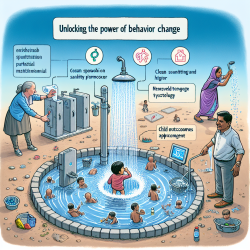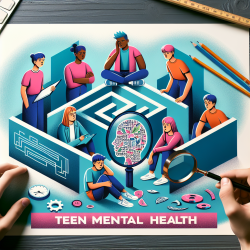Unlock the Secret to Effective Adolescent Mental Health Interventions!
As practitioners dedicated to improving the mental health of adolescents, it's crucial to stay informed about the most effective interventions. A recent comprehensive review titled Interventions for Adolescent Mental Health: An Overview of Systematic Reviews provides valuable insights into various strategies that can enhance mental health outcomes for young people.
Key Findings from the Review
The review, which analyzed 38 systematic reviews, categorizes interventions into four main areas: school-based, community-based, digital platforms, and individual-/family-based interventions. Each category offers unique insights into effective practices.
School-Based Interventions
- Targeted group-based interventions and cognitive behavioral therapy (CBT) are effective in reducing depressive symptoms and anxiety.
- School-based suicide prevention programs increase short-term knowledge of suicide and prevention strategies.
Community-Based Interventions
- Creative activities such as music and drama can positively impact behavioral changes, self-confidence, and self-esteem.
- Community-based programs show promise in improving mental health outcomes, though more research is needed for conclusive evidence.
Digital Platforms
- Internet-based prevention and treatment programs are effective for anxiety and depression.
- Digital platforms offer cost-effective solutions but require further rigorous research to optimize their use.
Individual-/Family-Based Interventions
- Exercise improves self-esteem and reduces depression scores, though it has no significant impact on anxiety.
- CBT is effective in reducing remission rates for anxiety disorders.
Implications for Practitioners
Practitioners should consider integrating these evidence-based interventions into their practice. School-based and digital interventions are particularly promising due to their accessibility and scalability. Community and family-based approaches can also be tailored to meet the specific needs of adolescents.
It's important to acknowledge the limitations of current research, such as the lack of standardized interventions and the need for long-term follow-up data. Practitioners are encouraged to contribute to this growing body of knowledge by implementing these strategies and sharing their outcomes.
To read the original research paper, please follow this link: Interventions for Adolescent Mental Health: An Overview of Systematic Reviews.










